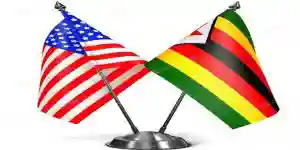The United States of America (USA) has said it does not support any political party in Zimbabwe ahead of harmonised elections scheduled for July.
This was stated by Robert Scott, the deputy assistant secretary for southern Africa, in an interview from Washington, DC, after the completion of his visit to Eswatini and Zimbabwe in early March.
This year’s elections will see opposition leader Nelson Chamisa leading the rebranded Citizens Coalition for Change (CCC) against ZANU PF in what is expected to be a two-man race.
Scott who met with key stakeholders in the upcoming elections in Zimbabwe says the USA wants to see a deserving winner become president, not a particular candidate. News24 cites Scott as saying said:
We do not support any politician or any political party. What we support is a strengthening of institutions that allows citizens of a country to express their will in democratic elections to choose their leaders.
The United States has been accused in the past of supporting opposition groups in Zimbabwe. The ruling ZANU PF argues that sanctions imposed by the USA were meant to champion the regime change agenda. However, the U.S. denies any involvement in such actions.
Scott met members of the opposition, the government’s foreign affairs, justice and home affairs ministries, civic society, and the military.
From his engagements, Scott said, so far, the playing field ahead of elections was not level particularly with the threat of the Private Voluntary Organisations Amendment Bill, which seeks to regulate the operations of civic society and NGOs.
Mnangagwa is yet to sign the bill into law.
Last week, he held consultative meetings with a section of civic society operating in Zimbabwe.
Scott had a meeting with the permanent secretary of defence, Aaron Nhepera and stressed that the military should not appear in election processes. He said:
I think it’s very consistent with international standards [military staying away] and the aspirants of any country to hold peaceful, transparent, and inclusive elections.
Zimbabwe has a history of military involvement in politics since gaining independence in 1980. The military’s role was initially limited, and civilian governments controlled the country. However, in the late 1990s and early 2000s, military involvement increased due to the rise of Robert Mugabe and his authoritarian rule. Mugabe relied on the military to stay in power, and many top leaders were military figures.
In 2017, the military helped remove Mugabe from power and replaced him with Emmerson Mnangagwa as the new president. Mnangagwa has tried to distance himself from Mugabe’s authoritarian style, but the military still has a significant role in politics.
Critics say that the military’s involvement in politics has damaged democracy and contributed to Zimbabwe’s economic and social problems. Supporters argue that the military has helped maintain stability and protect the country’s sovereignty.

